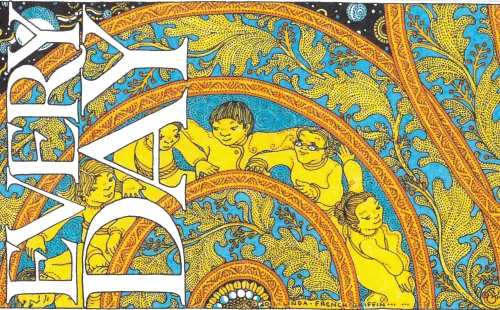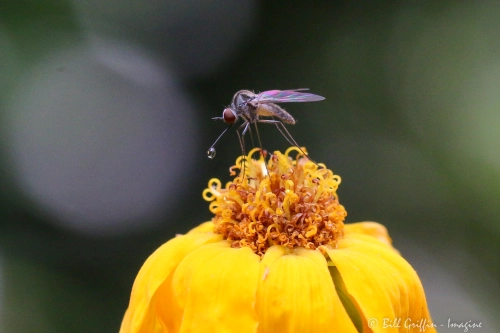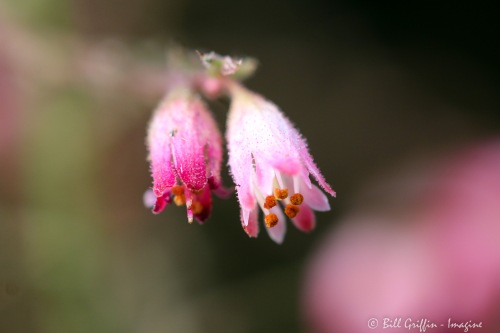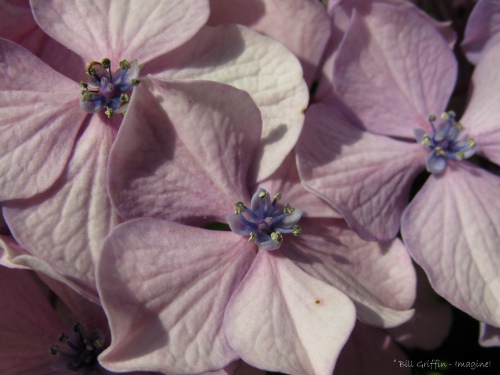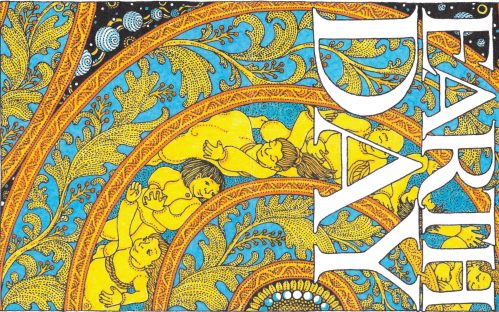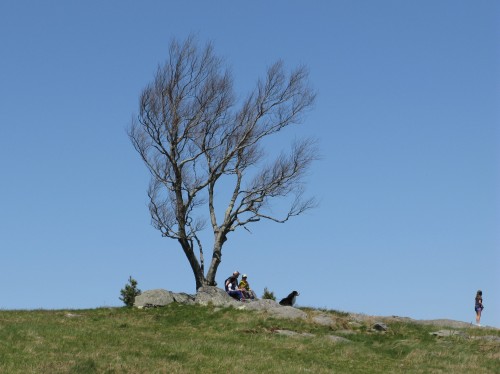Posts Tagged ‘Sam Love’
EARTH DAY EVERY DAY
Posted in ecology, Ecopoetry, Imagery, tagged Bill Griffin, Daniela Danz, Earth Day 2024, Earth Day Every Day, ecology, Ecopoetry, Gus Speth, nature, nature photography, nature poetry, poetry, Sam Love, William Blake on April 24, 2024| 2 Comments »
Earth Day Every Day
Posted in Ecopoetry, Imagery, Photography, poetry, tagged Ada Limón, Bill Griffin, Ecopoetry, imagery, Jennifer Elise Foerster, nature, nature photography, nature poetry, poetry, Robert Service, Sam Love on April 23, 2023| 2 Comments »
[with poems by Jennifer Elise Foerster, Robert Service,
Sam Love, Ada Limón]
One day for Earth Day? One day to honor our kinship with every thing that lives – Animal, Plant, Fungus, Protist, Archaea, Bacteria, all of them? One day to celebrate chlorophyll, the absolute best idea that life has ever had? One day to ponder in reverence this single solitary place in the universe that sustains life?
In Kim Stanley Robinson’s recent novel, The Ministry for the Future, one character, a member of The Ministry, reckons that what the earth needs to save itself is a new religion. Not new economics, not new politics, not even new technologies – a new religion.
Why religion? At its essence, religion is about The Good – how to define it, pursue it, encounter it, how to live encompassed in its expansive presence. Religion is permeative and interpenetrative – for its adherents, it occupies every aspect of life and every moment of consciousness. Religion is transcendent – ego, personal comfort, power, possessions, all fade to irrelevance in the presence of The Good. Religion is immanent, not there & then but here & now.
Here and now. Every day. Reverence and celebration. Stop and listen and you will hear Earth whispering its transcendent message: “More Life!”
❦
Thank you to the readers of these pages
who have responded to my call for poems this Earth Day.
Watch for new posts on April 21, April 22, and April 23.
All photographs were taken April 11-17, 2023,
along the Elkin & Allegheny Nature Trail,
part of the Mountains-to-Sea Trail in North Carolina, USA.
Earth Day 2023 art by Linda French Griffin.
❦ ❦ ❦
Origin of Planets
In this version, the valley
lime green after rain
rolls its tides before us.
A coyote bush shivers with seed.
We hold out our palms as if catching snow—
our villages of circular tracts
overcast with stars.
We have been moving together in sequence
for thousands of years, paralyzed
only by the question of time.
But now it is autumn under bishop pines—
the young blown down by wind feed
their lichens to the understory.
We follow the deer-path
past the ferns, to the flooded
upper reaches of the estuary.
The channel snakes through horsetails
and hemlock as the forest deepens, rises
behind us and the blue heron,
frozen in the shallows.
The shadow of her long neck ripples.
Somewhere in the rustling tulle reeds
spider is casting her threads to the light
and we spot a crimson-hooded fly agaric,
her toadstool’s gills white
as teeth as the sun
++++++++ bleeds into the Pacific.
We will walk the trail
until it turns to sand
and wait at the spit’s edge, listening
to the breakers, the seagulls
as they chatter their twilight preparations.
What we won’t understand
about the sound of the sea is no different
than the origin of planets
or the wind’s crystalline structures
irreversibly changing.
The albatross drags her parachute
over the earth’s gaping mouth.
We turn back only for the instant
the four dimensions fold
into a sandcastle—before its towers
are collapsed by waves.
The face that turns
toward the end of its world
dissolves into space—
despite us, the continuum
remains.
Jennifer Elise Foerster
Selected by Bill Griffin; Originally published in Poem-a-Day on December 20, 2022, by the Academy of American Poets. Copyright © 2022 by Jennifer Elise Foerster.
Jennifer Elise Foerster comments: “This poem emerged from one particular version of a day when I had the gift of walking with a friend on the Point Reyes National Seashore. I say ‘version’ because the path this poem follows is inevitably different from the path we walked, and distinct, too, from the many paths in my memory of that day. What all my versions share is that we walked toward the beach, toward twilight, at which point I wondered what it really meant to ‘turn back.’ At which point I watched the waves, the wind, the endless endings and beginnings, the turnings of gulls and seashells, planets peering through dusk. I love that wonderment doesn’t require understanding. How brief we are, and infinite in our versions of being here on earth.”
. . . wonderment doesn’t require understanding. I love understanding like I love the specifics of this poem, the creatures that occupy it, their occupations, but I also love the door it opens into reverence that requires no understanding. That, in fact, requires nothing of me at all except to take my place as part of the continuum.
– Bill Griffin / Elkin, North Carolina
❦ ❦ ❦
The Call of the Wild
Have you gazed on naked grandeur, where there’s nothing else to gaze on,
Set pieces and drop-curtain scenes galore,
Big mountains heaved to heaven, which the blinding sunsets blazon,
Black canyons where the rapids rip and roar?
Have you swept the visioned valley with the green stream streaking through it,
Searched the Vastness for a something you have lost?
Have you strung your soul to silence? Then for God’s sake go and do it;
Hear the challenge, learn the lesson, pay the cost.
Have you wandered in the wilderness, the sage-brush desolation,
The bunch-grass levels where the cattle graze?
Have you whistled bits of rag-time at the end of all creation,
And learned to know the desert’s little ways?
Have you camped upon the foothills, have you galloped o’er the ranges,
Have you roamed the arid sun-lands through and through?
Have you chummed up with the mesa? Do you know its moods and changes?
Then listen to the wild, — it’s calling you.
Have you known the Great White Silence, not a snow-gemmed twig a-quiver?
(Eternal truths that shame our soothing lies.)
Have you broken trail on snowshoes? Mushed your Huskies up the river,
Dared the unknown, led the way, and clutched the prize?
Have you marked the map’s void spaces, mingled with the mongrel races,
Felt the savage strength of brute in every thew?
And though grim as hell the worst is, can you round it off with curses?
Then harken to the wild, — it’s wanting you.
Have you suffered, starved, and triumphed, groveled down, yet grasped at glory,
Grown bigger in the bigness of the whole?
‘Done things’ just for the doing, letting babblers tell the story,
Seeing through the nice veneer the naked soul?
Have you seen God in His splendours, heard the text that nature renders
(You’ll never hear it in the family pew),
The simple things, the true things, the silent men who do things?
Then listen to the wild, — it’s calling you.
They have cradled you in custom, they have primed you with their preaching,
They have soaked you in convention through and through;
They have put you in a showcase; you’re a credit to their teaching –
But can’t you hear the wild? – It’s calling you.
Let us probe the silent places, let us seek what luck betide us:
Let us journey to a lonely land I know.
There’s a whisper on the night-wind, there’s a star agleam to guide us,
And the wild is calling, calling… let us go.
Robert Service
Selected by Mike Barnett; published in Robert Services’ first book of poetry, Songs of a Sourdough, in 1907.
Robert Service (1874-1958) was a British-Canadian poet, often called “the Bard of the Yukon.” This poem has always had a positive affect on me with its rugged description of wild places similar to the ones I have traveled while camping and backpacking. I have used the last two stanzas as quote material or ‘words of wisdom’ in camps I have directed, and I still use it often with my Family Nature Club.
– Mike Barnett / Eustis, Florida.
❦ ❦ ❦
Forest Bathing
My artificial cocoon
is really cozy as it
guards me from
nature’s wildness
My illuminated habitat
wards off the elements
and creates its own micro climate
oblivious to its carbon footprint.
And yet something is missing
as the artificial light challenges
the setting sun and the stale air
maintains a constant temperature.
In contrast a short distance away
nature beckons me to a forest
where natural bioenergy
can alter my mental state.
Strolling through this verdant space
I enjoy a heightened awareness
of life’s web and become open
to unspoiled wildness.
Feeling restored I thank the trees
and say goodbye to the
rustling leaves, trickling water,
melodic birds, dappling light,
and healing spirits.
Sam Love
Published in Earth Resonance: Poems for a Viable Future (Poetry Box, Portland Oregon)
The Japanese believe time in the forest can be healthy. They practice “forest bathing” or shinrin-yoku. Shinrin means “forest,” and yoku means “bath.” I find the noise in my head begins to quiet when I walk in an area untouched by so called civilization.
– Sam Love / New Bern, North Carolina
❦ ❦ ❦
Give Me This
I thought it was the neighbor’s cat back
to clean the clock of the fledgling robins low
in their nest stuck in the dense hedge by the house
but what came was much stranger, a liquidity
moving all muscle and bristle. A groundhog
slippery and waddle thieving my tomatoes still
green in the morning’s shade. I watched her
munch and stand on her haunches taking such
pleasure in the watery bites. Why am I not allowed
delight? A stranger writes to request my thoughts
on suffering. Barbed wire pulled out of the mouth,
as if demanding that I kneel to the trap of coiled
spikes used in warfare and fencing. Instead,
I watch the groundhog closer and a sound escapes
me, a small spasm of joy I did not imagine
when I woke. She is a funny creature and earnest,
and she is doing what she can to survive.
Ada Limón
Selected by Melinda Thomsen; originally published in Poem-a-Day on September 16, 2020, by the Academy of American Poets. Copyright © 2020 by Ada Limón.
I love this poem because the speaker at first mistakes the groundhog for a cat, something typically tame, but as she watches the animal enjoy its life, somehow this wild thing has sucked away all the speaker’s pain and replaced it with a jolt of unexpected joy. The wild draws us out of ourselves and into a healthier being.
– Melinda Thomsen / Greenville, NC
❦ ❦ ❦
All This and Wood Ducks, Too
Posted in Ecopoetry, Imagery, Photography, poetry, tagged Bill Griffin, ecology, Ecopoetry, imagery, nature, nature photography, nature poetry, NC Poets, phenology, poetry, Sam Love, Southern writing on April 8, 2022| 12 Comments »
[with 3 poems by Sam Love]
On March 15 I walked an Elkin trail I hadn’t visited in months. The Elkin & Allegheny Nature Trail includes a couple of miles of restored railway grade and many more miles of side trails, loops, and spurs, plus 5-6 miles of intermediate level bike trail. I hiked most of those miles on the 15th but only partially for the exercise – I was walking mostly for ephemera.
Note the date. Looking back at my photos and notes I uncover Hepatica blooming as early as January 27, a single plant in a protected hollow, but usually here in Elkin, elevation around 1000 feet, the earliest Hepatica and Trout Lily emerge toward the middle or end of February. So who’ll be showing themselves mid-March? I ask myself, and how long will they last?
The study of cyclical biological phenomena is phenology. When do migrating warblers arrive from Central America? We saw our first Ovenbird March 19; I heard a Northern Parula out back on April 3. When do Wood Frogs lay eggs? When do Midges and Mayflies hatch out and Eastern Bluebirds build their nests? Sometimes local weather affects a given year’s record but longer term trends are linked to climate change. Can’t help worrying about those Parulas if the hatching of their chicks is out of sync with the juicy bugs. Phenology is a leading indicator of climate change impact, especially on vulnerable species.
For today, my phenology project is discovering tiny blooms just making their appearance.
And if that weren’t enough, as I walk a section of bike trail beside Elkin Creek a pair of wood ducks skitter up from the water and the male flashes his phenomenal colors before they veer around a bend.
. . . . . . .
A Monument to Another Time
A winding rutted road
rambles through scattered rocks
to an abandoned homestead
that traces time backwards.
In the overgrown clearing
a hand laid stone chimney
pokes above winding vines
and gnarled tree limbs.
The fireplace stands as
tribute to an unknown mason
whose calloused hands
meticulously stacked the stones.
With the charred house gone
front porch music
no longer blesses the mountain
with notes and harmonies
that surf the Appalachian wind.
In spring wild flowers
scatter sun dappled beauty
among the crannies of this dream
of a simpler life, an abundant garden
and a small homestead taming nature.
Through winter the chimney
stands alone among
a palette of brown hues
that wait for spring shoots
to burst forth and repaint
the landscape.
Sam Love
Earth Resonance – Poems for a Viable Future, The Poetry Box, Portland, Oregon, © 2022
. . . . . . .
. . . . . . .
Thanks to Sam Love for alerting me to his new book of poetry about ecology and the environment: Earth Resonance – Poems for a Viable Future. Such an edgy relationship we humans have with all the other creatures in our biosphere. Mostly we ignore them except when they’re on our dinner plates. Any surprise that we have so much trouble getting along with things that creep and crawl and skitter and pounce (much less the ones that just stand there being green) when we can hardly get along with they guy whose yard sign doesn’t match ours?
And thanks to the Town of Elkin Recreation Department and the Elkin Valley Trails Association for all the great places to walk!
. . . . . . .
Visiting Khatyn
+++Peace Memorial in Minsk Region, Belarus
At sunset each step up the earthen berm
slowly reveals stone chimneys standing
as monuments to an unimagined darkness
that reduced hundreds of villages
to stone rubble and ashen timbers.
Across the field masonry memorializes
thousands of villagers burned alive
as Fascists sought revenge
for partisan guerilla attacks
launched from surrounding forests.
On hearths reaching to the horizon
urns rest filled with ashes and soil
scooped from the 628 flamed hamlets.
Each now lovingly stands as
a spiritual reminder of war’s insanity.
Three solitary birch trees and an eternal flame
symbolize the one quarter of Belarusians killed
in the world war that targeted their villages.
On this site twenty-six bells toll every hour
to remember the homes that once stood here.
The wind that whipped the flames
and charred the flesh, now cleanses the earth
leaving only spirits to haunt the memorial
and remind us of the horrors of war.
Sam Love
. . . . . . .
. . . . . . .
Turtle Earth
In the Lenape creation story—Nanapush asks,
“Who will let me put cedar branches on top of you
so that all the animals can live on you?”
And the turtle says, “You can put them on me
and I’ll float on the water.”
In a vision the Native American holy man
sees the animals bringing earth
from under the water to make land
on the back of the turtle
to create a verdant Eden
where plants and animals flourish.
In another dream the Indian shaman
sleeps a long sleep and
sees a barren turtle
with writhing serpents
thrashing rattlers through portals
in its armor-plated shell.
This hollow eerie sound
resonates with a dry rattle
of primordial notes memorializing
the emerging death of nature.
Sam Love
. . . . . . .
